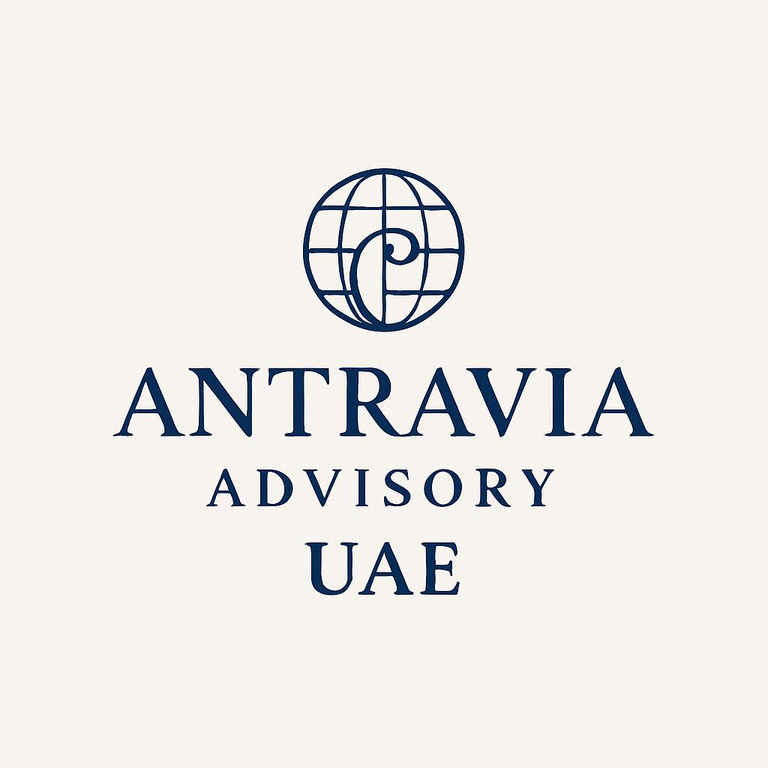Payment Gateways for UAE Hotels: Managing Guest Payments, Compliance, and Margins
Detailed resource for UAE hoteliers on payment gateways for global guests, featuring Stripe, Adyen, and PayPal costs, MoR vs. pass-through under CBUAE rules, chargeback mitigation, and e-invoicing-ready reconciliation for VAT compliance.
TRAVEL FINANCE AND ACCOUNTING BLOG - U.A.E EDITION
11/2/20255 min read


Payment Gateways for UAE Hotels: Managing Guest Payments, Compliance, and Margins
In the UAE’s hotel market, from Dubai’s luxury towers to Abu Dhabi’s heritage resorts, the guest payment process is as critical as the guest experience itself. With tourism expected to exceed 18 million visitors in 2025 according to the Dubai Department of Economy and Tourism (DET), the ability to capture payments efficiently and securely is now a key driver of profitability.
Direct bookings now represent around 50% of total reservations, and every transaction, whether for a room upgrade, spa treatment, or event deposit, passes through a payment gateway. The right setup can preserve revenue and reduce operational friction. The wrong one can quietly erode your ADR through hidden fees, delays, or chargebacks.
This guide focuses on payment gateway models best suited to UAE hotels, comparing fee structures across providers such as Stripe, Adyen, PayPal, and Nuvei, and outlining reconciliation and compliance considerations under the Central Bank of the UAE (CBUAE) and Federal Decree-Law No. 8 of 2017 on VAT.
Understanding Payment Gateways in the UAE Hotel Landscape
In a market where more than 60% of hotel guests are international visitors, payment gateways must handle multiple currencies while integrating seamlessly with systems such as OPERA PMS and mobile check-in apps.
Key features to prioritise include:
Strong Customer Authentication (SCA) under CBUAE 3-D Secure (3DS) requirements
PCI-compliant encryption to safeguard cardholder data
Alternative Payment Methods (APMs) such as Alipay and WeChat Pay, which now account for roughly 15% of Asian inbound transactions
Fees typically range between 2% and 3.5% per authorisation, with slightly higher rates for contactless payments, which now make up over 80% of in-person transactions.
Gateway flexibility is also becoming essential as Buy Now, Pay Later (BNPL) services expand in the region. In 2025, hotels offering Tabby or similar BNPL options reported up to 20% more premium suite upgrades, driven by guest convenience and spend flexibility.
Upcoming e-invoicing regulations, expected to begin pilot testing in July 2026, will require all gateways to produce structured XML audit trails by 2027, aligning payment data with FTA reporting requirements.
Merchant of Record vs Pass-Through: Choosing the Right Model
Your payment model should reflect your channel mix and level of control over guest payments.
Pass-Through Model
Funds are collected by OTAs or intermediaries, then remitted to the hotel after deduction of their commission (typically 10–18%). This approach reduces administrative effort but can delay cash inflows by two to four weeks and tie up working capital. VAT is accounted for by the OTA, meaning the hotel loses control over invoicing and customer refunds.
Merchant of Record (MoR) Model
The hotel collects and processes payments directly, recognising the revenue in full and remitting VAT at 5% to the Federal Tax Authority (FTA). MoR offers faster cash cycles, better visibility over revenue, and control over refund processes. However, it also places responsibility on the hotel for refund compliance under the 2025 Consumer Protection Law and AML obligations under Federal Decree-Law No. 20 of 2018.
DET data from 2025 shows UAE luxury hotels operating under the MoR model achieved average revenue growth of 32%, driven by direct payment capture and personalised pricing flexibility. Hybrid solutions, such as those offered by Adyen, now allow hotels to toggle between both models per booking while maintaining full e-invoicing compliance.
Comparing Gateway Costs: Stripe, Adyen, PayPal, and Nuvei
Although UAE interchange fees are capped by the CBUAE, actual processing costs vary depending on card type, currency, and settlement structure. On average, hotels pay 2.5% in gateway fees, with higher effective rates for GCC and international cards.
Stripe: 2.9% + AED 1.00 for domestic cards, + 1.5% for international, + 1% FX margin. Example: AED 28 on a AED 1,000 room charge. Chargebacks AED 55 each. Terminal 1.4% + AED 0.37. Radar fraud monitoring AED 0.20 per transaction.
Adyen: Interchange (0.3–2%) + 0.6% + AED 0.40 per transaction. FX 0.6–1.2%, 3DS 0.1%. Annual PCI audit AED 1,800.
PayPal: 2.9% + AED 1.10 domestic, + 1.5% international, 3–4% FX spread. Instant transfer fee 1%. Typically AED 50–70 on AED 2,000 transactions.
Nuvei: 2.9% + AED 1.10 base, discounted for volumes above AED 370,000. Refunds AED 0.75 each. Volume-based savings ~0.2%.
Always review FX mark-ups, instant payout fees, and fraud-protection surcharges, as these can add up to 0.3–0.5% of each booking.
Managing Chargeback Risk
Chargeback rates in the UAE average 1.2%, among the highest in the region, with typical disputed values around AED 440. Under CBUAE regulations, guests have 60 days to file a claim, and hotels acting as Merchant of Record bear both the direct cost (AED 55–90 per case) and the lost revenue.
A 300-room property operating at 80% occupancy could lose AED 80,000–90,000 annually if chargebacks are not managed effectively.
To mitigate risk:
Enforce clear cancellation and refund policies with written confirmations
Use 3DS verification for all card-not-present transactions
Retain dated communication and folio records for audit purposes
Monitor chargeback ratios monthly to remain under 0.7%, the threshold accepted by most payment networks
Modern fraud-detection tools integrated with Adyen or Stripe can reduce chargebacks by up to 40% while maintaining a smooth guest experience.
Streamlining Reconciliation and Accounting
Reconciliation is one of the biggest challenges for UAE hotels, especially where OTA settlements (paid 21–45 days later) must be matched against front-desk collections and folio adjustments.
With e-invoicing becoming mandatory, reconciliation must now meet FTA audit standards. Integrations through Zoho Books, Xero, or Oracle APIs can automatically match daily settlements, such as an AED 800 charge reconciled to an AED 720 net payout after fees, capturing FX impacts and VAT simultaneously.
Best-practice hotels now achieve full payment reconciliation within three hours of daily close, using virtual accounts for incidentals and ID-based batch reports for control.
Hotels maintaining 25–40% gross margins in the UAE increasingly cite payment automation and digital VAT accuracy as key drivers of financial resilience.
At Antravia UAE, we work with hotels to design gateway and accounting integrations that align with CBUAE and VAT rules, strengthening revenue flow, compliance, and cash visibility in equal measure.


References
Stripe UAE Pricing: https://stripe.com/ae/pricing
Adyen Pricing: https://www.adyen.com/pricing
PayPal UAE Fees: https://www.paypal.com/ae/digital-wallet/paypal-consumer-fees
CBUAE Regulations: https://www.centralbank.ae/en/our-operations/payments-and-settlements
UAE VAT E-Invoicing: https://tax.gov.ae/en/vat/e-invoicing.aspx
Merchant Models: https://www.wexinc.com/resources/blog/merchant-vs-agency-model-travel-payments/
Chargeback Stats: https://www.chargeflow.io/blog/chargeback-statistics-trends-costs-solutions
Reconciliation: https://www.payrails.com/blog/hospitality-payment-report
Nuvei for Travel: https://www.nuvei.com/posts/payment-processing-for-the-travel-industry
DET Tourism Data: https://www.visitdubai.com/en/business/tourism-performance
Disclaimer
This article is for general informational purposes only and does not constitute legal or financial advice. Regulations and fees can change; always verify details directly with the Dubai Department of Economy and Tourism before applying. Antravia AE does not currently offer regulated company formation or tax filing services in the UAE.
Antravia Advisory U.A.E.
Where Travel Meets Smart Finance
Email:
Contact us:
© 2025. All rights reserved. | Disclaimer | Privacy Policy | Terms of Use | Accessibility Statement
© 2025 — Antravia.ae part of the Antravia Group.
Antravia.com | Antravia.co.uk | Antravia.ae |
Finance.travel | Tax.travel | Consultancy.travel | Vat.travel | Vat.claims |
USSales.tax | EuroVAT.tax | UKVAT.tax |
contact@antravia.com
Antravia LLC
